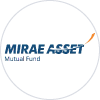Scheme type
AMC
Risk appetite
Rating
Returns

"Bank Of India Credit Risk Fund - Regular Plan"
Min. investment
Rs. 5000.0
5 Year Returns
25.92%

"Aditya Birla Sun Life Medium Term Plan - Growth - Regular Plan"
Min. investment
Rs. 1000.0
5 Year Returns
12.18%

"DSP Credit Risk Fund - Regular Plan -Growth"
Min. investment
Rs. 100.0
5 Year Returns
11.11%

"Bank Of India Short Term Income Fund-Regular Plan- Growth"
Min. investment
Rs. 1000.0
5 Year Returns
10.08%

"Aditya Birla Sun Life Credit Risk Fund - Regular Plan - Growth"
Min. investment
Rs. 100.0
5 Year Returns
9.79%

"Baroda BNP Paribas Credit Risk Fund -Regular-Growth Option"
Min. investment
Rs. 500.0
5 Year Returns
9.30%

"UTI Credit Risk Fund - Regular Plan - Growth Option"
Min. investment
Rs. 500.0
5 Year Returns
9.24%

"Nippon India Medium Duration Fund - Growth Option"
Min. investment
Rs. 100.0
5 Year Returns
8.74%

"HSBC Credit Risk Fund - Regular Growth"
Min. investment
Rs. 1000.0
5 Year Returns
8.37%

"UTI Dynamic Bond Fund - Regular Plan - Growth Option"
Min. investment
Rs. 500.0
5 Year Returns
8.28%

"UTI Medium To Long Duration Fund- Regular Plan - Growth"
Min. investment
Rs. 500.0
5 Year Returns
7.85%

"ICICI Prudential Credit Risk Fund - Growth"
Min. investment
Rs. 100.0
5 Year Returns
7.25%







































Frequently asked questions
What are Debt mutual funds?
Debt mutual funds invest in fixed-income securities such as bonds, treasury bills, and money market instruments. They aim to generate steady returns through interest income and capital gains from selling securities. Debt funds provide a balanced investment option, offering lower risk and stable returns compared to equity funds, making them an ideal choice for conservative investors.
Is it safe to invest in debt mutual funds?
Debt mutual funds offer lower risk compared to equity funds, making them safer for conservative investors. However, they are not entirely risk-free, as they carry interest rate risk, credit risk, and liquidity risk. The fund's safety depends on its portfolio composition and the quality of the securities held.
Which is better, FD or debt mutual fund?
Choosing between Fixed Deposits (FDs) and debt mutual funds depends on factors like investment goals, risk tolerance, and liquidity needs. FDs offer guaranteed returns but lower potential gains, while debt mutual funds provide potentially higher returns with slightly higher risk and better liquidity. Assess your financial objectives before deciding.
Are debt funds taxable?
Yes, debt funds are taxable based on the holding period. Gains from units sold within three years are subject to short-term capital gains tax at the investor's income tax slab rate. Gains from units held longer than three years are classified as long-term capital gains, taxed at 20% with indexation benefits.
Are debt funds risky?
Debt funds carry varying levels of risk, including interest rate risk, credit risk, and liquidity risk. The degree of risk depends on the fund's portfolio composition and market conditions. Government-backed securities and high-rated corporate bonds offer lower risk, while securities with lower credit ratings or long durations carry higher risk.
Which debt funds are safest?
Gilt funds, which invest primarily in government securities, are considered among the safest debt funds. They offer lower risk due to government backing, ensuring minimal risk of default. Additionally, funds investing in high-rated corporate bonds or banking and PSU securities provide safer options, balancing returns and risk.
Can I withdraw debt funds anytime?
Yes, debt funds offer high liquidity, allowing investors to redeem units at any time. However, some funds may impose exit loads if redeemed within a specified period, typically a few months to a year. Investors should check the fund's terms before redeeming to avoid potential fees.
Is a debt fund good for the long term?
Debt funds can be suitable for long-term investment, particularly those with longer-duration securities. They offer steady returns through interest income and capital gains, with lower risk compared to equities. Additionally, holding funds for over three years provides tax-efficient returns through long-term capital gains tax with indexation benefits.
Is it good to invest in a short-term debt fund?
Yes, short-term debt funds are ideal for investors seeking stable returns and high liquidity for short-term goals. These funds invest in securities with maturities up to three years, balancing returns and risk. They offer predictable income streams, making them suitable for parking funds temporarily or maintaining an emergency fund.
How do I choose a debt fund?
Choosing a debt fund involves considering several factors, including portfolio composition, historical returns, expense ratio, and risk profile. Investors should evaluate the fund's holdings, strategy, and past performance to assess its potential returns. Additionally, comparing expense ratios with other funds can help ensure a balanced cost-to-return ratio.
Do debt funds have a lock-in period?
No, debt funds generally do not have a lock-in period, offering high liquidity and allowing investors to redeem units at any time. However, some funds may impose exit loads if units are redeemed within a specified period, typically a few months to a year, which investors should consider.
What are the risks of debt funds?
Debt Funds carry several risks, including interest rate risk, credit risk, and liquidity risk. Interest rate risk occurs when market rates fluctuate, affecting bond prices and the fund's NAV. Credit risk arises if the issuer defaults, while liquidity risk impacts the fund's ability to quickly sell its securities, potentially reducing returns.
Can I make a SIP investment in debt funds?
Yes, many debt funds allow Systematic Investment Plans (SIPs), enabling investors to contribute regularly in smaller amounts. This approach helps average the cost of units over time, reducing the impact of market volatility. SIPs are suitable for building a portfolio steadily, offering a disciplined investment strategy with steady returns.
What are long-term goals in the context of debt fund investments?
Long-term goals in the context of debt fund investments refer to financial objectives that are typically set for a period of five years or more. These may include retirement planning, funding children's education, or purchasing a home. Debt funds help achieve these goals by providing steady returns and preserving capital over a long period, aligning with the investor's risk tolerance and income needs.
Why include debt funds in a long-term investment portfolio?
Including debt funds in a long-term investment portfolio offers stability, reduces overall portfolio risk, and provides regular income. They act as a buffer against the volatility of equity markets, ensuring a balanced approach to achieving financial goals. Debt funds also offer predictable returns, making them a reliable option for conservative investors aiming for steady growth over the long term.
Should I diversify my debt fund investments?
Yes, diversifying debt fund investments is advisable. By spreading investments across various debt fund categories, such as dynamic bond funds, corporate bond funds, and gilt funds, investors can mitigate risks associated with interest rate changes and credit defaults. Diversification helps in achieving a balanced risk-return profile, enhancing the stability and performance of the overall investment portfolio.
What is a good allocation strategy for long-term debt fund investments?
A good allocation strategy for long-term debt fund investments involves diversifying across different types of debt funds, considering factors like interest rate trends, credit quality, and investment horizon. For instance, a mix of dynamic bond funds, income funds, and gilt funds can balance risk and returns. Regularly reviewing and rebalancing the portfolio ensures alignment with long-term financial goals and market conditions.
Is it advisable to take high credit risks with debt funds?
Taking high credit risks with debt funds is generally not advisable, especially for conservative investors focused on long-term goals. High credit risk can lead to potential defaults, impacting the stability and returns of the investment. Instead, opting for debt funds with high-quality credit ratings provides safer and more predictable returns, aligning better with long-term financial objectives.
How can I choose the right debt funds for my long-term goals?
To choose the right debt funds for long-term goals, consider factors such as credit quality, interest rate sensitivity, fund manager track record, and expense ratio. Assess your risk tolerance and investment horizon. Diversify across various debt fund categories like dynamic bond funds, gilt funds, and income funds to balance risk and return. Regularly review and adjust your portfolio to stay aligned with your long-term objectives.





